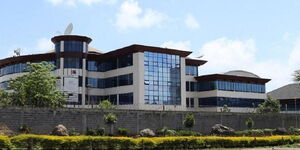Deputy President Kithure Kindiki has revealed he has not been able to celebrate Christmas for the past two years.
Speaking during the Kenya Tea Centenary Celebrations on Friday, November 15, in Mombasa, the DP revealed that the nature of his jobs has not allowed him to have time and celebrate Christmas.
The DP was promising the tea, stakeholders that he would be traveling with them to market the Kenyan tea, especially now that he has the leverage to travel, unlike when he served as the Interior Cabinet Secretary.
"I have a bit more leverage to travel now because I have not been able to travel because of the previous national duty I was doing which compelled me to stay within the territory of Kenya 24 hours a day, 7 days a week, including on Christmas day.
"I am the only person who for the last two or three years, I have not been able to even go on Christmas. When you are on Christmas vacation, I am on duty," the DP stated.
Kindiki served as the Interior Cabinet Secretary in charge of the nation's security for the past two years before he ascended to the Deputy President position.
The position of the Deputy President fell vacant after the National Assembly voted in favor of a motion to impeach former Deputy President Rigathi Gachagua.
The Deputy President has promised to use the same firmness and force to ensure Tea reforms are implemented in the nation and expand its growth and market.
Acknowledging that implementing the reforms may not be easy, the DP revealed that the government will not relent in implementing them to ensure that Tea farmers benefit from the crop that is among Kenya's leading exports.
"Tea is part of the national heritage of our country and is embedded in the struggle for freedom of our country. Kenyan Tea just like our athletes is a globally recognized and outstanding brand," the DP affirmed.
Tea farming was introduced in the country in 1903 and the first attempt at commercialization of the crop was made in 1924.
One hundred years later, tea growing cuts across 21 counties and supports over 800,000 farmers, and more than 6.5 million people directly and indirectly.












